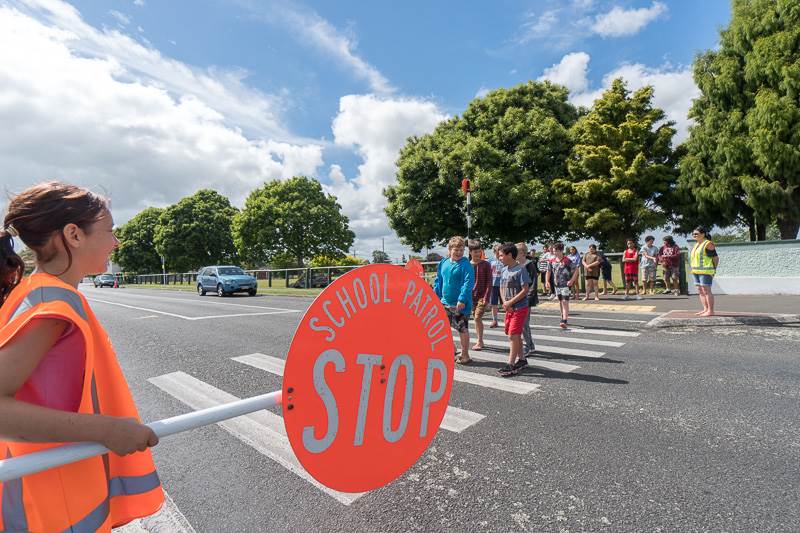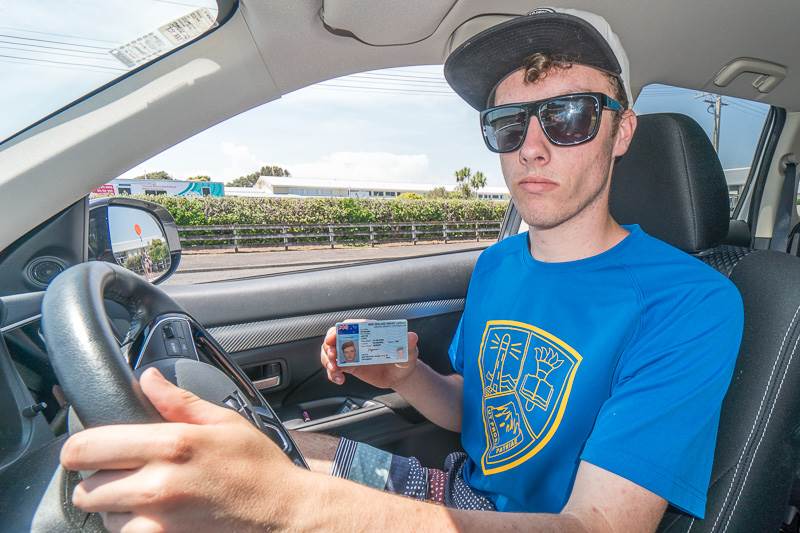Attempting to change behaviour and attitudes on our roads can be difficult without the support of our communities. Roadsafe Taranaki recognizes collaboration, partnerships and a shared goal creates opportunities to make our roads a safer place. This is why community groups, schools and road safety partners are needed to make positive change.

Schools & Community
What help can we get for a Road Safety Project?
Roadsafe Taranaki has a number of options to support and help schools or community groups with road safety projects. Check out our Campaign and Resources tab on the front page of our website to see what sort of resources and funding could be available for your project.
If you are based in the New Plymouth district and would like more information about how to create a travel plan, contact a member of the Let’s Go team at the New Plymouth District Council. If you are based in South Taranaki or Stratford districts, then please contact a member of our team.

School Patrols
School Patrol training is managed by the New Zealand Police via the School Community Officers. Training of supervisors and students is usually undertaken in late Term 4 to prepare the students for Term 1 of the following year.
During the first four weeks of Term 1 Police target speed around schools with mobile patrols while the School Community Officers observe and complete revision if needed at each school patrol.

School Speed Zones
Speed around schools is a major road safety issue. Speed is not just about exceeding the posted speed limit, it is about going too fast for the conditions.
School Speed zones are selected using NZ Transport Agency criteria and the schools are often on busy arterial and state highways. New Plymouth District Council is gradually working towards a safe school zone outside all schools in their district. A school speed zone is an effective tool designed to slow traffic and increase driver awareness of the presence of children.
Rural School Safe Speeds
A number of Taranaki rural schools are situated within limited speed zones, however, many are still in rural areas that have a 100 km per hour limit. Creating a safe speed for schools while not detrimentally affecting other road users can have its challenges.
Roadsafe Taranaki has funded high-visibility vests for bus students over the last five years to increase the visibility of students as they walk to and from the bus stops.
The NZ Transport Agency and Auckland Transport have partnered up to work together on a two-year trial, with four rural schools targeting a 60 km per hour enforceable speed limit sign, which is activated during peak school traffic hours. We will provide updates on this trial as we receive the information.

Driver Training
Roadsafe Taranaki funds an annual Advanced Driving Course for young or inexperienced drivers. This includes theory, interactive activities and two short practical courses on emergency braking and cornering. The venue is rotated between New Plymouth, Hawera and Stratford. The course will be advertised via radio, newspaper, workplace, secondary schools, Roadsafe Taranaki website/facebook and posters.
To register your interest for any future driving courses we may run, please send an email to one of our team.
Driver training in Taranaki is provided by a range of organisations and their details can be found on the New Zealand Transport Agency website.

Driver Licensing
Taranaki is a rural region with limited access to public transport. The region’s workforce is very reliant on agriculture and the oil and gas industry so being able to drive is crucial for employment and everyday life.
Roadsafe Taranaki supports a number of driver licensing programmes around the region. Contact us to find out who delivers a course that would suit your needs.
For those aged between 16 to 24 there are a number of agencies and organisations with funding and resources that are prepared to help you gain your driver licence.
How Can I Support Road Safety?
There are a number of ways you can support road safety in Taranaki. This includes:
- Support road safety events via your networks
- Include road safety during meetings/assemblies and include messages in any school newsletters
- Encourage staff to identify and report road safety risks then actively reduce or eliminate that risk
- Invite Roadsafe Taranaki to deliver a road safety activity into your school or community group
- Help fund a course or licensing programme that benefits young at risk drivers
Resources
Road safety education resources are available at no cost from Roadsafe Taranaki.

